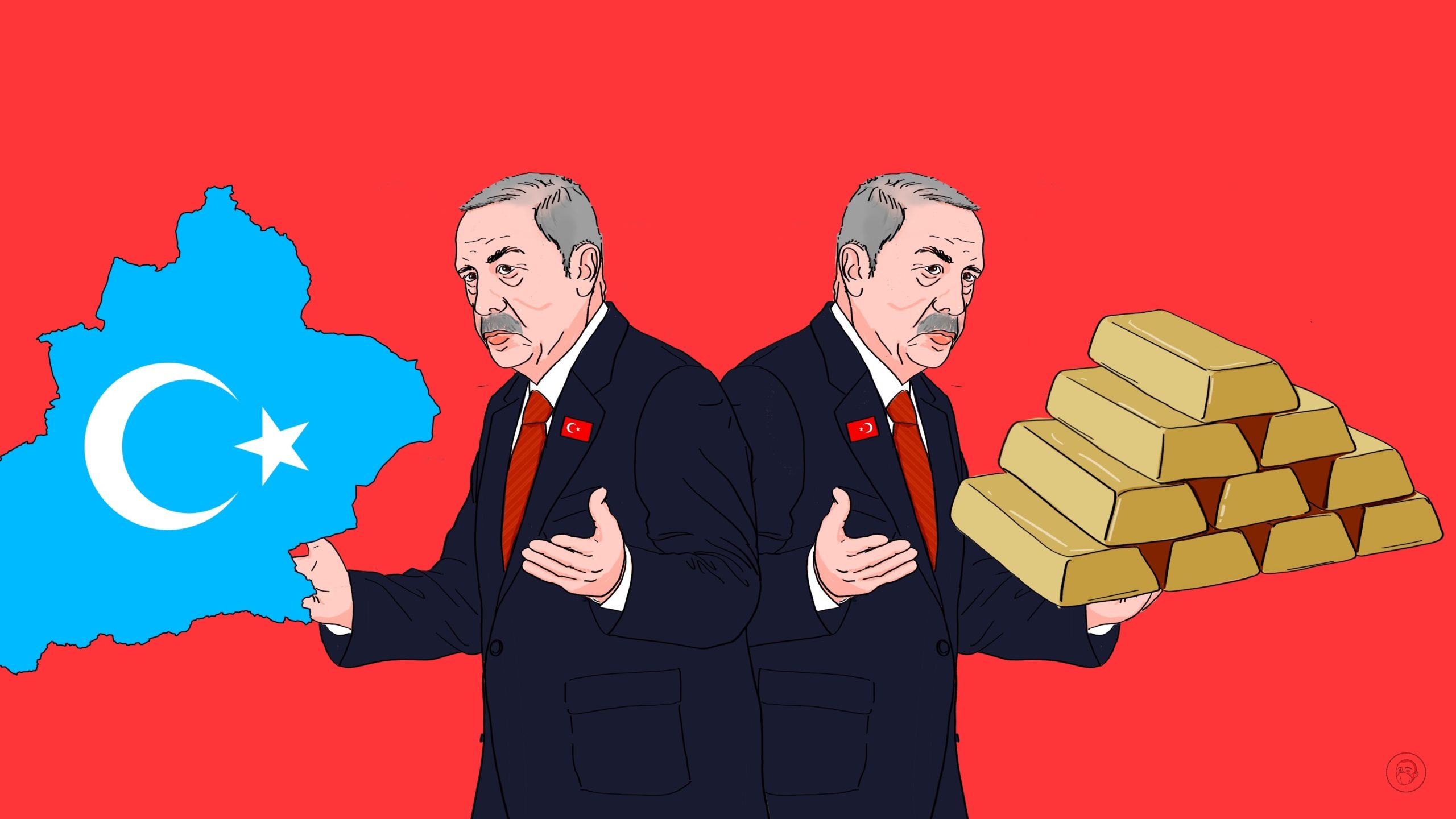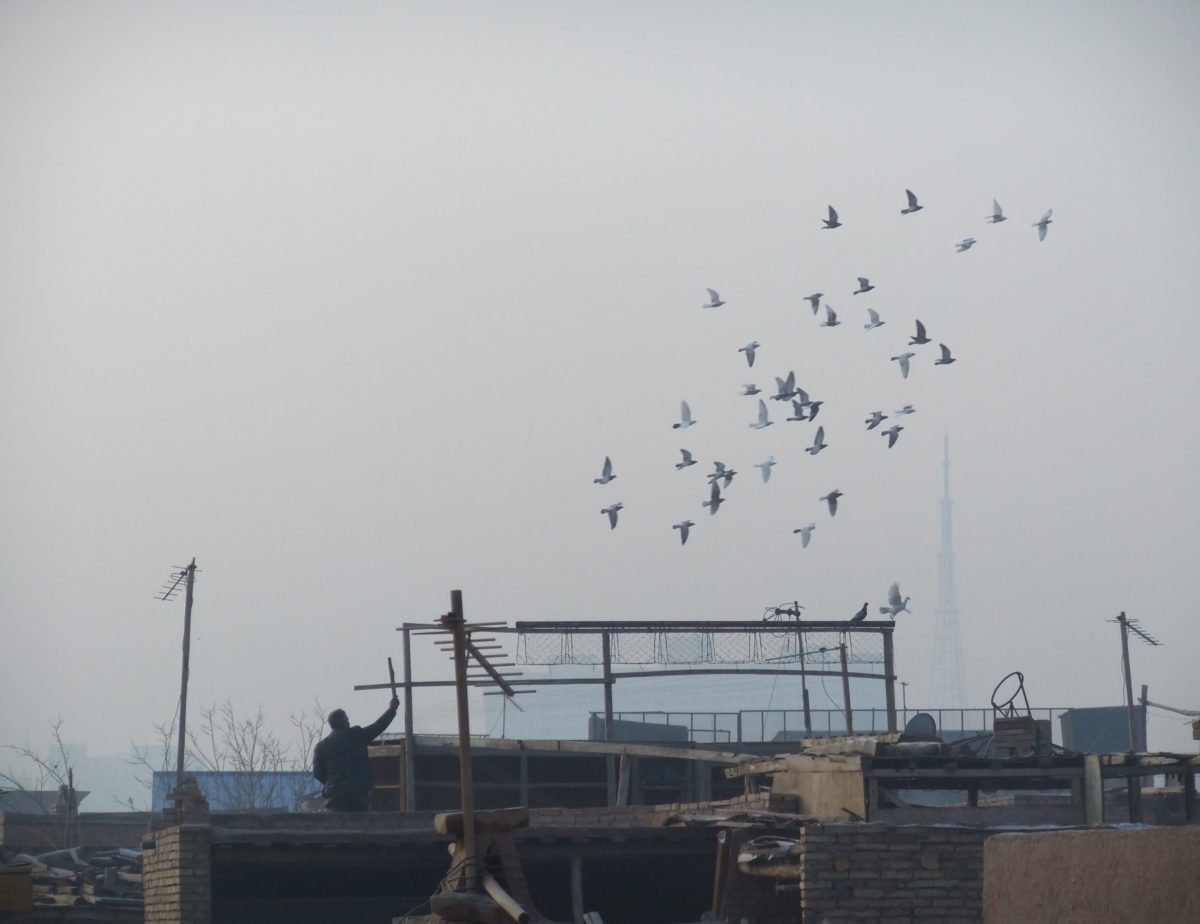Is the Turkish government going to stand up for Uyghurs, or will economic interests win out?
As Turkey heads into an election season, officials are promising that the country will not extradite Uyghurs to China. Can they be trusted?

Turkey’s foreign minister, Mevlüt Çavuşoğlu, vowed that his country will not extradite Uyghurs who have Turkish citizenship to China no matter how Beijing pressures Ankara. He made the comment in a December 29 press briefing (see also report in Turkish). He also remarked, “Our defense of the rights of the Uyghur Turks in the presence of the international community disturbs China.”
Istanbul-based Uyghur activist Medine Nazimi, who is the president of the Chinese Concentration Camp Victims’ Group, told The China Project that such statements are nothing new, and are usually made to galvanize political support.
The historically oft-made promise to protect Uyghurs usually comes amid Turkish election fever, which this year is particularly fraught with political tension. Uyghurs and Turkish people are ethnically, culturally, and linguistically related, and many Turks are highly sympathetic to the Uyghur plight.
Nazimi, who was plunged into activism following the detention and disappearance of her sister in Xinjiang, said she was heartened by Cavusoglu’s recent statement but is also reserving her judgment. Cavusoglu’s remarks come on the heels of peaceful Uyghur protests in Istanbul in November 2022 that were broken up by police.
Uyghur advocacy and demonstrations are usually tolerated by Turkish police, but not that time: Threats of deportation were reportedly made to Uyghurs who gathered for a vigil outside the Chinese consulate to mourn the deaths of Uyghurs in an Ürümchi tower block fire in November 2022 that sparked protests against COVID lockdown policies all over China. (China reported 10 fatalities, but the Uyghur Rights Advocacy Project says 44 people died, all of whom were Uyghurs, and activist Rahima Mahmut also says more than 40 Uyghurs perished in the blaze.)
Turkey is holding a presidential vote on June 24, and it will likely be — according to Turkish political commentator Özgür Ünlühisarcikli — “highly unfair, but real and still competitive.”
Foreign Minister Cavusoglu is smarting from Beijing’s cooling over loans and its refusal to allow a Turkish delegation to visit Xinjiang despite a promise from Xí Jìnpíng 习近平 back in 2019, but he has also been accused of trying to win votes from those in Turkey who care about the Uyghur issue.
Beijing has avoided welcoming critics to Xinjiang since revelations about widespread human rights abuses first began to be reported in the international media in 2017. But it has particularly alienated some in Turkey by leaving the country off the guest list of a 30-strong Muslim leader delegation from 14 nations to Xinjiang over the new year.
Turkey has previously been offered tours to the area, but Cavusoglu said the country would not participate in such arranged visits. He told reporters at his December 29 conference in December, “Why should we become a tool for China’s propaganda?”
The deputy of Turkey’s Nationalist Good Party, Fahrettin Yokus, was scathing about Cavusoglu’s motives when interviewed by Voice of America, suggesting the announcement was a cynical ploy to curry favor with the electorate. The Turkish government rarely takes the Uyghur situation seriously, he claimed.
Uyghurs have been taking refuge in Turkey since 1952, when they first began to flee after the Chinese Communist Party took over their homeland. They have since then left China through a variety of circuitous routes, frequently separated from family members, some perishing en route and many having to abandon spouses and children at home. Dreams of reunions since 2016 have been dashed following draconian policies spearheaded by Chén Quánguó 陈全国, who was moved from Tibet in 2016 to be Communist Party chief of Xinjiang, and rolled out one of the most sweeping incarcerations of human beings since the Holocaust. (Chen was replaced in December 2021 by an apparently more liberal successor, but China’s policies in Xinjiang do not seem to have softened since then.)
Turkey’s uncomfortable relationship with the Uyghurs and with China
Despite many Turks welcoming their Turkic brethren, the Turkish government’s relationship with the Uyghurs has ebbed and flowed over the years, usually linked to its relationship with China. Xi Jinping’s $40 billion Belt and Road Initiative to re-create ancient land and sea trade routes through the Middle Kingdom and on to Europe needs Turkey on board. The Mediterranean port city of Izmir will be a key hub in the project, and neither country can afford to fall out with the other.
A major scandal between the countries erupted after Uyghurs started to flee their homeland in large numbers in 2015 and make the perilous journey through Southeast Asia to Turkey: Many reported that they had paid Turkish officials in Malaysia over the odds for false Turkish passports, thus giving rise to accusations by Beijing that Turkey was facilitating terrorism.
As the crisis in Xinjiang deepened, reports reached the Turkish diaspora of increased religious and ethnic persecution of Uyghurs at home, and up to 100 being deported from Thailand back to China. This news provoked Uyghur riots in Turkey, and attacks on two Thai embassies that threatened to destabilize the China-Turkey relationship on the eve of an Erdogan visit to Beijing in 2015.
The relationship between the countries since then has had its ups and downs. Under the guise of terrorism prevention, China and Turkey signed an extradition treaty in 2017, which unnerved the Uyghur community considerably, many of whom have been tarred with the terrorism brush by China simply for sporting beards, having copies of the Quran, or giving their children Islamic names. According to Beijing, they are de facto international criminals and should be returned to China.
The extradition treaty
China ratified the extradition treaty in December 2020, but Turkey has yet to sign it. However, the treaty is hanging over the heads of Uyghurs in the country. Omer Kanat, the executive director of the Uyghur Human Rights Project (UHRP), described this sword of Damocles as their “worst nightmare.” They are “terrified” that “China will use strongarm diplomacy to force Turkey to deport innocent Uyghurs to China, where they face certain detention and torture, or worse,” he said.
Thousands of Uyghurs living in Turkey have endured a twilight existence, severed from their families and the only life they know, to start again as best they can, but long-term security has been elusive under the ever-present threat of repatriation. Random detentions of Uyghurs have been ongoing since 2017; nineteen were detained by Turkish police in 2021 on charges of being ISIS members, fueling fears that extradition was still on the agenda. Dawn raids and detentions have become a fact of life for some of these people since then. Others still hope to go home and have kept their Chinese passports, and never applied for residency — but as the years drag on, most have come to terms with the fact that they may never be able to go home.
Turkey has given most exiled Uyghurs a permanent residence card, but has until now awarded Turkish passports sparingly to the “newcomers,” nervous of irritating Beijing by colluding with so-called “terrorists.” Fear of damaging the Chinese relationship has always prevented Turkey from issuing strong official condemnations of atrocities in Xinjiang.
Rumors of the death in custody of the beloved dutar player Abdurehim Heyit in early 2019, however, forced the Turkish government to break the silence and call on the UN to “take effective measures in order to bring to an end this human tragedy in Xinjiang.” “It is a great shame for humanity,” said Hami Aksoy, spokesperson of the Ministry of Foreign Affairs. These comments incensed Beijing.
The Turkish government keeps changing its mind
Such occasional criticism of Beijing from official Turkish voices does not, however, reassure Uyghurs about their future in the country.
“One moment we think we might be safe, but the next the government seems to change its mind,” the Uyghur activist Medine Nazimi said. “We live under the constant threat that we could be sent back.”
The Turkish government to date has also done little to warn Beijing off spying on and monitoring the diaspora, she said, claiming that Chinese spies, often Uyghurs whose families have been threatened at home, have been sent into their community to monitor their lives and report back.
She said the mental health of the Uyghur diaspora community is at an all-time low. A long-awaited and hoped-for recent Turkish government policy to award passports to Uyghurs has resulted in estimates of up to 20,000 Uyghurs in a queue to receive citizenship. If this were a true figure, Nazimi would be happy, but she is not holding her breath:
No one I know has yet been successful. I know we have the support of millions of ordinary Turks, but politics and economic gain will always have the upper hand…Wherever we go and whatever Turkey decides, our relatives at home are still in the hands of Beijing. However free we become here, their life doesn’t change.






